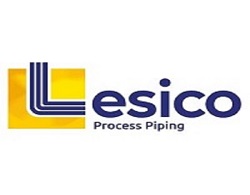Piping systems form the backbone of many industrial operations, ensuring that fluids, gases, and other materials are transported efficiently and safely across production lines. Whether it’s for chemical plants, oil refineries, or food processing facilities, manufacturing piping solutions play a crucial role in optimizing operational performance. With advancements in technology and engineering, industries today require customized piping manufacturing solutions that cater to specific needs, ensuring longevity, safety, and enhanced productivity.
In this blog, we’ll explore the importance of process piping solutions, the different types of materials used, and how modern manufacturing has transformed these systems to meet the demands of various industries.
Understanding Manufacturing Piping Solutions
Manufacturing piping solutions refer to the entire system of pipes, valves, and fittings that are essential for transporting materials like water, gas, oil, chemicals, and more across manufacturing facilities. These systems are designed to maintain the integrity of the fluid or gas being transported while ensuring safety, reliability, and efficiency in operations.
In today’s industrial landscape, piping systems must adhere to stringent regulations, especially regarding environmental impact, safety protocols, and efficiency. Therefore, selecting the right piping manufacturing approach is critical to a company’s success.
Benefits of Efficient Manufacturing Piping Solutions:
- Cost Efficiency: Well-designed systems reduce maintenance needs and improve energy efficiency.
- Safety: Adherence to safety standards protects the workforce and minimizes risks.
- Longevity: High-quality materials extend the lifecycle of piping systems, reducing the frequency of repairs or replacements.
- Flexibility: Modern solutions can be customized for various industrial needs, providing tailored solutions for different processes.
Process Piping Solutions: A Vital Component in Manufacturing
Process piping solutions are a subset of industrial piping systems specifically designed to transport fluids and gases involved in a manufacturing process. Unlike standard plumbing systems, process piping is crucial to the actual manufacturing or chemical process taking place. This type of piping plays a critical role in industries such as pharmaceuticals, oil and gas, petrochemical, and food and beverage production.
Key Features of Process Piping Solutions:
- Customization: Each industry has unique requirements, making it essential for process piping to be highly customizable.
- Corrosion Resistance: Since many chemicals and substances can be corrosive, the piping materials must withstand harsh conditions.
- Compliance: Industries like pharmaceuticals and food and beverage production must comply with strict regulations, including FDA and ISO standards, to ensure that their products are safe for consumption or use.
- Durability: The systems must be built to last, handling high pressure, temperature variations, and aggressive chemicals without degrading.
The Evolution of Piping Manufacturing
The piping manufacturing industry has undergone significant transformations over the years, thanks to technological innovations and an increased focus on sustainability and safety. In the past, metal pipes like steel and copper were predominantly used. Today, advanced materials such as PVC, CPVC, and HDPE are increasingly being used for their corrosion-resistant properties and ease of installation.
Advancements in Piping Manufacturing:
- Automation and Robotics: The advent of automation in piping manufacturing has led to faster, more precise production of pipes and components. Automated systems also enhance the accuracy of fittings and reduce human errors.
- 3D Modeling and CAD Design: Before installation, modern piping systems are often designed using 3D modeling and computer-aided design (CAD) software. This allows engineers to simulate the entire system, identifying any potential issues before manufacturing begins.
- Prefabrication: Prefabricated piping systems, where parts of the system are manufactured off-site and assembled at the installation site, have become increasingly popular. This approach reduces on-site labor and installation time while ensuring a higher level of precision in manufacturing.
Materials Used in Modern Manufacturing Piping Systems
The material used in a piping manufacturing system significantly impacts its performance, longevity, and safety. Different industries have different material requirements based on the fluids or gases being transported, the temperature, and the pressure levels.
Common Materials Used in Piping Solutions:
- Stainless Steel: Known for its durability and corrosion resistance, stainless steel is widely used in industries such as food processing, pharmaceuticals, and chemical manufacturing.
- Copper: Copper is known for its excellent thermal conductivity and is often used in HVAC systems and refrigeration applications. However, it is more expensive than some alternatives and can corrode over time.
- Plastic (PVC/CPVC): PVC and CPVC are lightweight, cost-effective, and resistant to corrosion, making them a popular choice in industries such as water treatment and food and beverage production. CPVC is preferred in high-temperature applications.
- Carbon Steel: This material is used in industries where high pressure and temperature are factors. It is commonly found in oil and gas refineries, petrochemical plants, and power generation facilities.
- HDPE (High-Density Polyethylene): HDPE is a durable, corrosion-resistant material often used for water and gas distribution. It is also popular in chemical plants due to its ability to withstand harsh conditions.
The Role of Design in Efficient Piping Systems
Design plays a pivotal role in the efficiency and functionality of process piping solutions. A well-designed system takes into account factors such as the flow rate, pressure, and temperature of the transported substances. Engineers use advanced simulation tools to test different designs before installation, ensuring the final system is optimized for both performance and cost.
Essential Aspects of Process Piping Design:
- Flow Rate Calculations: Ensuring that pipes are of the appropriate diameter to handle the required flow rate without causing pressure drops.
- Heat Transfer Considerations: In industries where temperature control is vital (e.g., pharmaceuticals and food production), insulation and heat exchange systems are critical.
- Material Selection: Choosing the right material that can handle the type of fluid or gas being transported while maintaining durability and safety.
Environmental and Safety Standards in Manufacturing Piping
Sustainability and safety have become central considerations in manufacturing piping solutions. Many industries are now implementing eco-friendly practices in their production processes, which extend to their piping systems. This involves selecting materials that have a lower environmental impact and designing systems that minimize energy consumption.
Key Environmental and Safety Considerations:
- Leak Detection Systems: To avoid environmental contamination, modern piping systems are equipped with leak detection technology that alerts operators in case of a breach.
- Energy Efficiency: By optimizing the flow and reducing friction losses in piping systems, companies can minimize energy consumption, reducing their carbon footprint.
- Safety Protocols: Adhering to international safety standards (such as OSHA in the U.S.) is essential in protecting workers and ensuring the safe operation of manufacturing facilities.
Conclusion: The Future of Manufacturing Piping Solutions
The future of piping manufacturing looks promising, with ongoing advancements in materials science, automation, and environmental technology. Industries are moving towards more sustainable, efficient, and safe systems, helping to reduce costs while meeting stringent safety and environmental standards.
For industries across the globe, adopting modern manufacturing piping solutions is not just about improving operational efficiency but also about building resilient systems that support long-term growth and sustainability.
As companies continue to innovate, the focus will be on creating piping systems that are not only highly durable and efficient but also adaptable to the evolving needs of different industries. In this ever-changing industrial landscape, investing in high-quality process piping solutions is crucial for staying competitive and ensuring long-term success.



